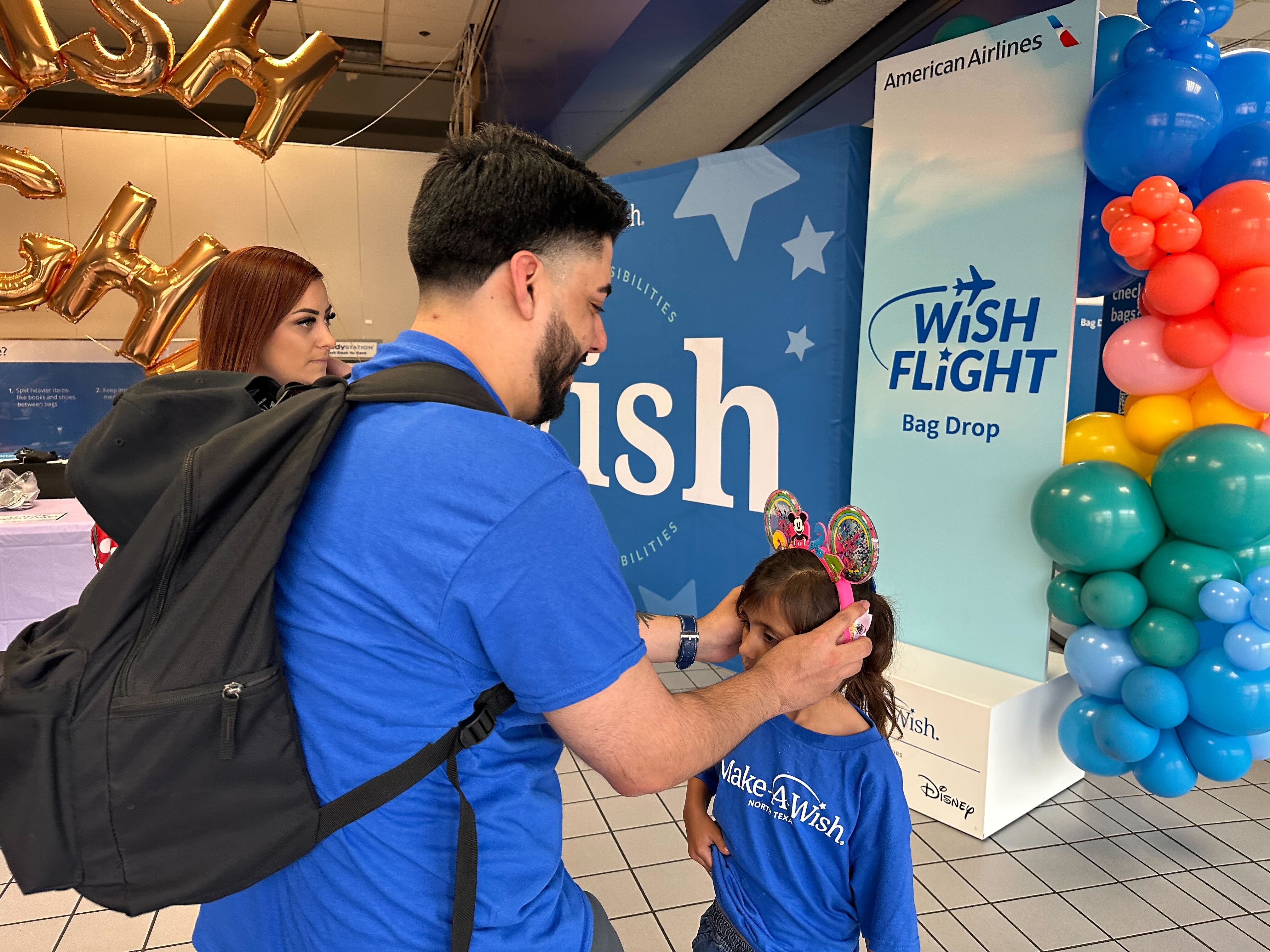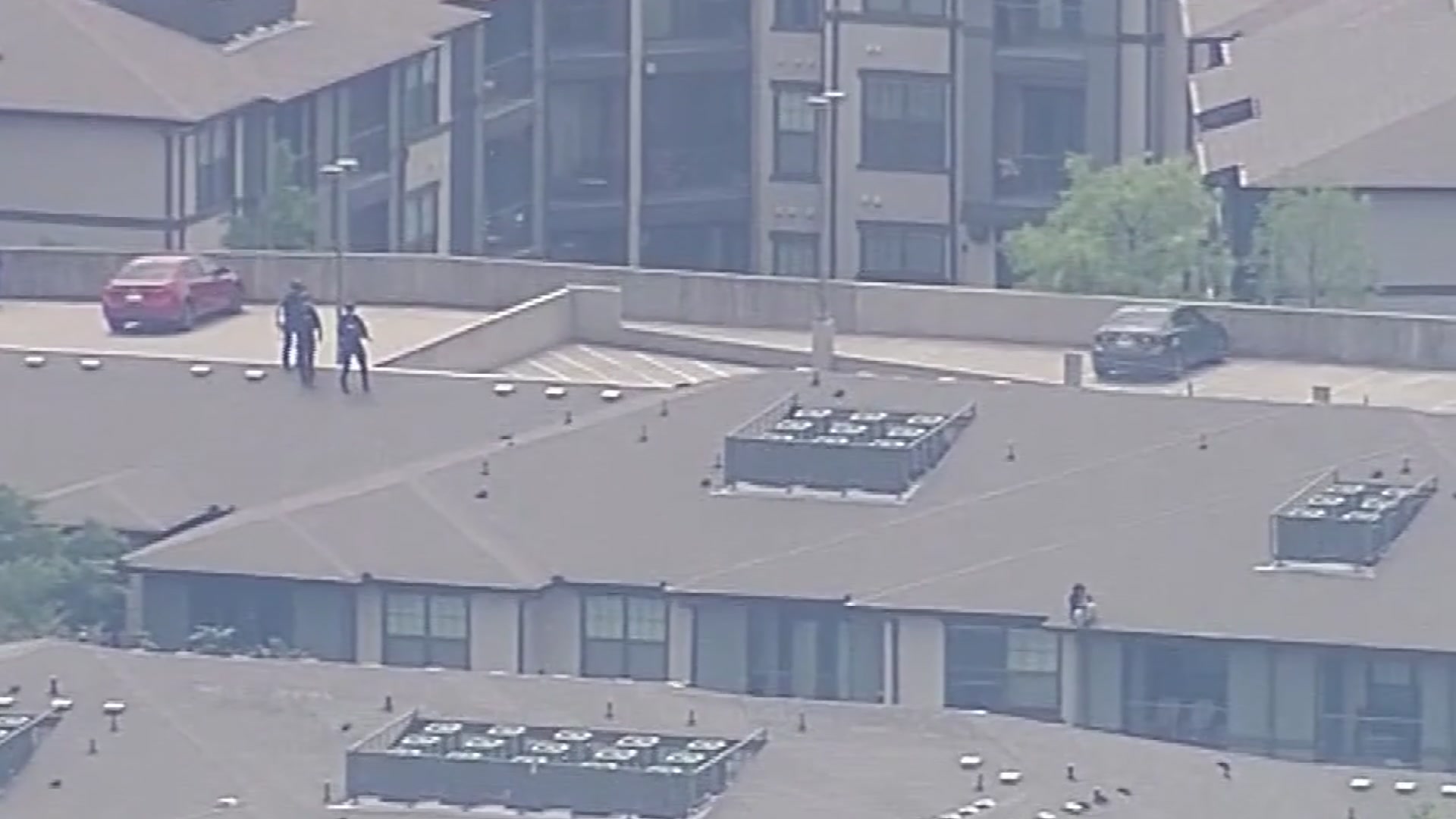With a few more hours left to prepare for Hurricane Laura, now expected to make landfall as a category three hurricane, North Texas first responders are arriving along the coast to assist local emergency crews.
Firefighter-paramedic Colby Oberle arrived in Beaumont Tuesday morning. Oberle is part of a six-person crew from Plano Fire-Rescue and the Frisco Fire Department who drove down in Frisco’s AMBUS, a large ambulance equipped to care for as many as 18 patients.
Oberle expects to help with evacuations at assisted living facilities with additional precautions because of the pandemic.
“It's just one more step that we have to take to protect ourselves and the patients that we're treating,” said Oberle. “We're still going to wear all the proper PPE with our gowns and masks and face shields.”
The Richardson Fire Department also sent crews to help with the disaster response.
Three first responders traveled to the Beaumont area with an ambulance to assist with evacuations and two more will be part of a search and rescue team.
“We have really increased the amount of personal protective equipment that they go with,” said Assistant Fire Chief of Operations Gene Senter.
Local
The latest news from around North Texas.
“They are also very experienced in the job that they are doing for the State of Texas,” added Senter. “You bring all that experience together and it results in our capacity to really get into some difficult situations and come out with the most good possible.”
The already difficult logistics of emergency hurricane response have been compounded this hurricane season by COVID-19 concerns.
Matt Zavadsky with MedStar said the pandemic impacts everything from hotel accommodations for crews to food supply. Crews used to share rooms or camp out, if necessary, in a pre-pandemic hurricane response.
“This deployment has been like none other ever because we’ve got social distancing that has to occur,” Zavadsky told NBC 5. “We did not send our AMBUS down because we want to keep patients in individual areas because of a risk for coronavirus.”
Zavadsky said MedStar sent seven people in three ambulances to assist with evacuations in South Texas.
Once evacuations occur, shelter operations will look different too. Tuesday, Governor Greg Abbott asked evacuees to consider going to hotels in order to remain isolated during the pandemic.
The CDC advises people who are staying with family or friends to discuss a plan to protect each other from COVID-19 - including avoiding hugs, kisses or sharing of food and drinks.
Karen Watt, a registered nurse, joined the American Red Cross as a volunteer during the pandemic.
“I got my training online, virtually watching videos, talking to other Red Cross volunteers on the phone for hours,” said Watt. “I'm confident that I've got the basic training that I need to respond to most situations.”
The East Texan is on her way to Baton Rouge, Louisiana to volunteer with a disaster response that will be unlike any other Texans have seen.
“With the COVID environment, it'll look different than most Red Cross response to disasters,” said Watt. “Everybody who comes for assistance, we're going to be doing temperature checks and asking all the standard questions we have all become used to these days.”
Though the pandemic will produce new challenges, Watt said it encouraged her to lend her skills to the American Red Cross.
“We've always been taught from the time we were children that giving back is important and it just speaks to my heart,” said Watt.
Oberle also volunteered for the deployment, agreeing to take time away from his wife and toddler son.
“We do this to help those that need it or that can't help themselves,” said Oberle.
“We hope that we continue to bless people during these hardships that they're facing,” added Oberle.



